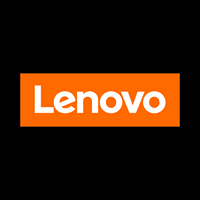Ericsson and Lenovo: A New Chapter in Patent Licensing
April 4, 2025, 5:12 am
In the fast-paced world of technology, disputes over patents can feel like a never-ending game of chess. Moves are calculated, and stakes are high. Recently, two giants in the tech arena, Ericsson and Lenovo, made a significant move by settling their long-standing patent litigation. This settlement is not just a resolution; it’s a turning point that could reshape their future interactions and the broader landscape of mobile technology.
On April 3, 2025, Ericsson and Lenovo announced they had reached a settlement regarding their patent licensing dispute. This settlement marks a partial resolution to a complex web of legal challenges that had entangled both companies for years. The agreement allows both parties to withdraw ongoing lawsuits and administrative proceedings in multiple jurisdictions, including actions pending before the United States International Trade Commission (USITC). It’s a sigh of relief for both companies, which can now redirect their focus toward innovation rather than litigation.
The financial implications of this settlement are expected to be recognized starting in the second quarter of 2025. This is a crucial detail, as it signals a shift in the financial landscape for both companies. For Ericsson, known for its robust patent portfolio of over 60,000 patents, this settlement could enhance its intellectual property revenue streams. The company has invested heavily in research and development, with annual expenditures exceeding SEK 50 billion. Such investments are not just numbers; they represent Ericsson’s commitment to leading the charge in 5G technology and beyond.
Lenovo, on the other hand, is a powerhouse in the computing and mobile device market. The company’s partnership with Ericsson in patent licensing is vital for its continued growth and innovation. By settling this dispute, Lenovo can focus on expanding its product offerings and enhancing its competitive edge in the global market. The collaboration between these two companies is essential, as it allows them to leverage each other’s strengths and resources.
However, the settlement is not the end of the road. Both companies have agreed to enter arbitration to resolve the remaining patent licensing disputes fully. This step is crucial. It indicates that while they have made progress, there are still unresolved issues that need careful navigation. Arbitration can be a double-edged sword; it can lead to a swift resolution or prolong the conflict if not handled effectively.
The backdrop of this settlement is the ever-evolving landscape of mobile technology. As 5G networks roll out globally, the demand for robust patent licensing agreements will only increase. Companies like Ericsson, which are at the forefront of developing mobile standards, play a pivotal role in shaping the future of connectivity. Their patents are not just legal documents; they are the building blocks of the digital world.
Ericsson’s position as a leading vendor in the 5G space is fortified by its extensive research and development efforts. The company’s commitment to innovation is evident in its contributions to the 3rd Generation Partnership Project (3GPP), which develops global mobile standards. This involvement not only enhances Ericsson’s reputation but also ensures that it remains a key player in the telecommunications industry.
For Lenovo, the settlement with Ericsson is a strategic move. It allows the company to focus on its core business while ensuring it has access to essential technologies. The collaboration can lead to new products and services that benefit consumers and enterprises alike. In a world where technology evolves at lightning speed, staying ahead of the curve is paramount.
The resolution of this dispute also reflects a broader trend in the tech industry. As companies increasingly rely on collaboration and partnerships, the need for clear and fair patent licensing agreements becomes more critical. The days of fierce legal battles may be waning as companies recognize the value of cooperation over conflict. This settlement could serve as a blueprint for other tech giants facing similar disputes.
In conclusion, the settlement between Ericsson and Lenovo is more than just a legal agreement; it’s a strategic pivot for both companies. It allows them to focus on innovation and collaboration in a rapidly changing technological landscape. As they move forward, the outcomes of their arbitration will be closely watched. The tech world is a stage, and this settlement is just one act in a much larger play. The future of mobile technology depends on how these companies navigate their remaining disputes and leverage their strengths. In the end, it’s not just about patents; it’s about paving the way for the next generation of connectivity.
On April 3, 2025, Ericsson and Lenovo announced they had reached a settlement regarding their patent licensing dispute. This settlement marks a partial resolution to a complex web of legal challenges that had entangled both companies for years. The agreement allows both parties to withdraw ongoing lawsuits and administrative proceedings in multiple jurisdictions, including actions pending before the United States International Trade Commission (USITC). It’s a sigh of relief for both companies, which can now redirect their focus toward innovation rather than litigation.
The financial implications of this settlement are expected to be recognized starting in the second quarter of 2025. This is a crucial detail, as it signals a shift in the financial landscape for both companies. For Ericsson, known for its robust patent portfolio of over 60,000 patents, this settlement could enhance its intellectual property revenue streams. The company has invested heavily in research and development, with annual expenditures exceeding SEK 50 billion. Such investments are not just numbers; they represent Ericsson’s commitment to leading the charge in 5G technology and beyond.
Lenovo, on the other hand, is a powerhouse in the computing and mobile device market. The company’s partnership with Ericsson in patent licensing is vital for its continued growth and innovation. By settling this dispute, Lenovo can focus on expanding its product offerings and enhancing its competitive edge in the global market. The collaboration between these two companies is essential, as it allows them to leverage each other’s strengths and resources.
However, the settlement is not the end of the road. Both companies have agreed to enter arbitration to resolve the remaining patent licensing disputes fully. This step is crucial. It indicates that while they have made progress, there are still unresolved issues that need careful navigation. Arbitration can be a double-edged sword; it can lead to a swift resolution or prolong the conflict if not handled effectively.
The backdrop of this settlement is the ever-evolving landscape of mobile technology. As 5G networks roll out globally, the demand for robust patent licensing agreements will only increase. Companies like Ericsson, which are at the forefront of developing mobile standards, play a pivotal role in shaping the future of connectivity. Their patents are not just legal documents; they are the building blocks of the digital world.
Ericsson’s position as a leading vendor in the 5G space is fortified by its extensive research and development efforts. The company’s commitment to innovation is evident in its contributions to the 3rd Generation Partnership Project (3GPP), which develops global mobile standards. This involvement not only enhances Ericsson’s reputation but also ensures that it remains a key player in the telecommunications industry.
For Lenovo, the settlement with Ericsson is a strategic move. It allows the company to focus on its core business while ensuring it has access to essential technologies. The collaboration can lead to new products and services that benefit consumers and enterprises alike. In a world where technology evolves at lightning speed, staying ahead of the curve is paramount.
The resolution of this dispute also reflects a broader trend in the tech industry. As companies increasingly rely on collaboration and partnerships, the need for clear and fair patent licensing agreements becomes more critical. The days of fierce legal battles may be waning as companies recognize the value of cooperation over conflict. This settlement could serve as a blueprint for other tech giants facing similar disputes.
In conclusion, the settlement between Ericsson and Lenovo is more than just a legal agreement; it’s a strategic pivot for both companies. It allows them to focus on innovation and collaboration in a rapidly changing technological landscape. As they move forward, the outcomes of their arbitration will be closely watched. The tech world is a stage, and this settlement is just one act in a much larger play. The future of mobile technology depends on how these companies navigate their remaining disputes and leverage their strengths. In the end, it’s not just about patents; it’s about paving the way for the next generation of connectivity.

